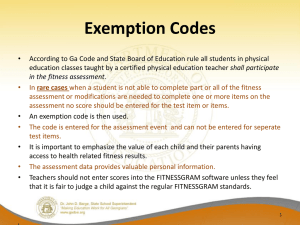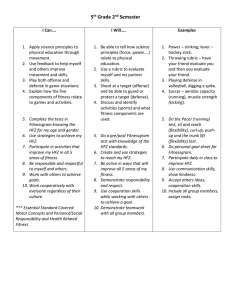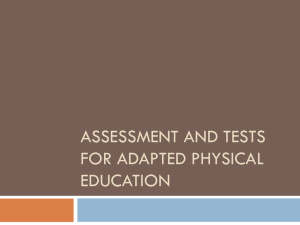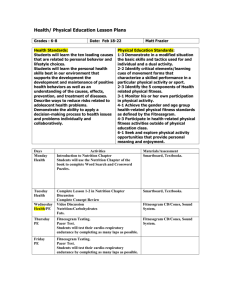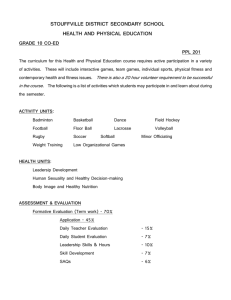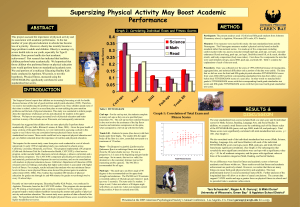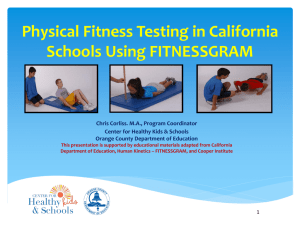PE GR9 SLO - Transition to Common Core
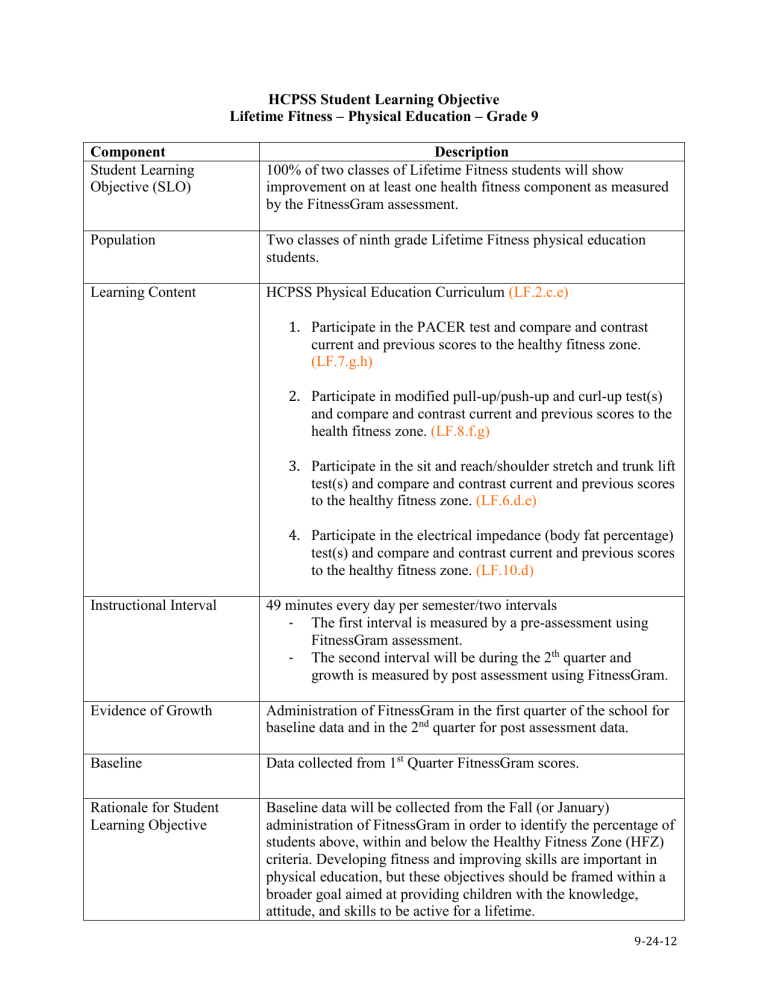
Component
Student Learning
Objective (SLO)
Population
Learning Content
Instructional Interval
Evidence of Growth
Baseline
HCPSS Student Learning Objective
Lifetime Fitness – Physical Education – Grade 9
Description
100% of two classes of Lifetime Fitness students will show improvement on at least one health fitness component as measured by the FitnessGram assessment.
Two classes of ninth grade Lifetime Fitness physical education students.
HCPSS Physical Education Curriculum (LF.2.c.e)
1.
Participate in the PACER test and compare and contrast current and previous scores to the healthy fitness zone.
(LF.7.g.h)
2.
Participate in modified pull-up/push-up and curl-up test(s) and compare and contrast current and previous scores to the health fitness zone. (LF.8.f.g)
3.
Participate in the sit and reach/shoulder stretch and trunk lift test(s) and compare and contrast current and previous scores to the healthy fitness zone. (LF.6.d.e)
4.
Participate in the electrical impedance (body fat percentage) test(s) and compare and contrast current and previous scores to the healthy fitness zone. (LF.10.d)
49 minutes every day per semester/two intervals
-
The first interval is measured by a pre-assessment using
FitnessGram assessment.
-
The second interval will be during the 2 th quarter and growth is measured by post assessment using FitnessGram.
Administration of FitnessGram in the first quarter of the school for baseline data and in the 2 nd
quarter for post assessment data.
Data collected from 1 st
Quarter FitnessGram scores.
Rationale for Student
Learning Objective
Baseline data will be collected from the Fall (or January) administration of FitnessGram in order to identify the percentage of students above, within and below the Healthy Fitness Zone (HFZ) criteria. Developing fitness and improving skills are important in physical education, but these objectives should be framed within a broader goal aimed at providing children with the knowledge, attitude, and skills to be active for a lifetime.
9-24-12
Target
Criteria for Effectiveness
Strategies
All students will increase the number of scores in the HFZ by at least one assessment.
All students that scored in the HFZ for all 5 assessments will improve their score within the HFZ for at least 1 or more assessments .
Full Attainment of
Target
Partial Attainment of Target
More than 90% of students meet agreed upon learning targets.
Between 75% and
90% of students meet agreed upon learning targets.
Insufficient
Attainment of
Target
Fewer than
75% of students meet agreed upon learning targets.
Use Fall (or January) FitnessGram (baseline data) data to plan instruction, including the use of individual category data to identify greatest area of need in curriculum implementation.
Focus on instructional strategies to improve understanding and demonstration of the fitness concepts and skills.
Integrate fitness concepts and skills in all lessons.
Display and utilize fitness vocabulary.
Plan and implement instruction utilizing Universal Design for Learning (UDL) for effective instruction.
Use formative skills assessments (Assessments/rubrics can be found on HCPSS Physical Education Wiki).
9-24-12
